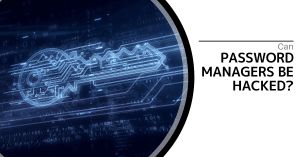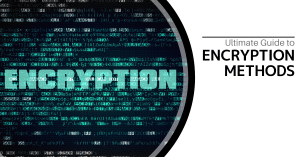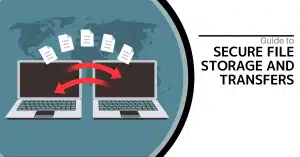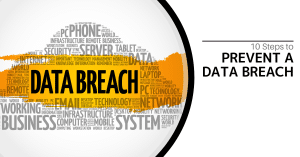Accounting firms must prioritize cybersecurity to protect sensitive financial data and maintain client trust. Implementing robust security measures can prevent data breaches and cyber threats.
Cybersecurity is crucial for accounting firms handling confidential financial information. With increasing cyber threats, firms need to adopt strong security practices. Regularly updating software, using multi-factor authentication, and conducting employee training are essential steps. Encrypting data and securing networks can prevent unauthorized access.
Firms should also establish incident response plans to address breaches promptly. Prioritizing cybersecurity not only safeguards client data but also enhances the firm’s reputation. By staying vigilant and proactive, accounting firms can effectively protect their digital assets and maintain client confidence in an increasingly digital landscape.

Credit: myfastech.com
Importance Of Cybersecurity
Cybersecurity is crucial for accounting firms. Sensitive data must stay protected. Cyber threats are increasing. Firms need to safeguard client information.
Rising Threats
Cyber threats are growing every day. Hackers target accounting firms. They want financial data and personal information.
- Phishing attacks are common.
- Ransomware can lock your files.
- Data breaches expose client data.
These threats can harm your business. They can lead to financial losses and reputation damage.
Impact On Accounting Firms
Cyber attacks can disrupt your operations. Clients may lose trust in your firm. You could face legal penalties.
| Threat | Impact |
|---|---|
| Data Breach | Loss of client trust |
| Ransomware | Financial loss |
| Phishing | Compromised data |
Protecting data is essential. Implement strong cybersecurity measures. Train your staff regularly.
Key Cybersecurity Measures
- Use strong passwords.
- Update software regularly.
- Encrypt sensitive data.
- Backup data frequently.
These steps can prevent many attacks. Stay vigilant and protect your firm.
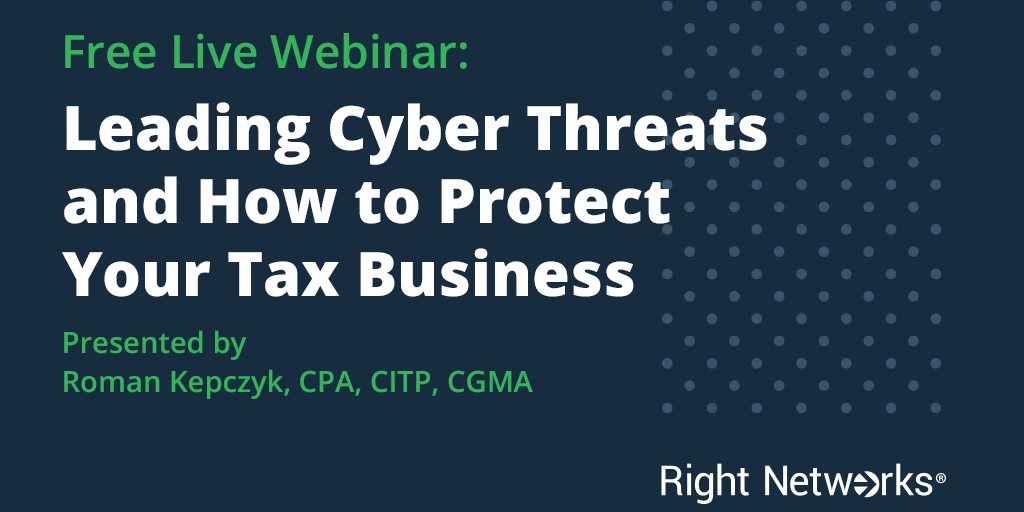
Credit: www.drakesoftware.com
Common Cyber Threats
Accounting firms face numerous cyber threats daily. Understanding these threats helps protect sensitive data. This section explores common cyber threats that accounting firms encounter.
Phishing Attacks
Phishing attacks trick employees into revealing sensitive information. These attacks often use emails that look legitimate.
Phishing emails may ask for login credentials or financial information. They often have a sense of urgency to prompt quick action. Here are some signs of phishing emails:
- Suspicious sender addresses
- Generic greetings
- Spelling and grammar errors
- Urgent or threatening language
Educating staff about these signs is crucial. Regular training can reduce the risk of falling for phishing scams.
Ransomware
Ransomware is a type of malicious software. It encrypts files and demands payment for the decryption key.
Ransomware can enter a system through phishing emails or infected websites. Once activated, it can spread quickly across the network. To protect against ransomware:
- Regularly back up data
- Update software and security patches
- Use robust antivirus programs
- Train employees on safe browsing practices
Having a solid backup plan is essential. It ensures you can restore data without paying the ransom.
Data Breaches
Data breaches occur when unauthorized individuals access sensitive information. This can lead to financial loss and reputational damage.
Common causes of data breaches include weak passwords and unsecured networks. To minimize the risk of data breaches:
- Implement strong password policies
- Use multi-factor authentication
- Encrypt sensitive data
- Regularly audit access permissions
Monitoring and logging access to sensitive information is also vital. It helps identify and respond to breaches quickly.
Implementing Strong Password Policies
Accounting firms handle sensitive financial data. Protecting this data is crucial. One effective way is by implementing strong password policies. These policies help prevent unauthorized access. Let’s explore the key aspects.
Password Complexity
Complex passwords are harder to crack. Use a mix of characters. Include uppercase, lowercase, numbers, and special symbols. For example:
| Weak Password | Strong Password |
|---|---|
| password123 | P@ssw0rd!23 |
Encourage employees to avoid common words. They should also avoid using personal information. Complex passwords increase security.
Regular Updates
Regularly updating passwords enhances security. Set a schedule for password changes. A good practice is every 60-90 days. Remind employees to update passwords on time.
Here are some tips for regular updates:
- Set calendar reminders.
- Use password management tools.
- Ensure unique passwords for each account.
Regular updates prevent unauthorized access. They keep sensitive data safe.
Employee Training
Employee training is critical for accounting firms to ensure cybersecurity. Training employees to recognize threats and practice safe online behaviors can prevent data breaches. Below are essential aspects of employee training in cybersecurity.
Recognizing Threats
Employees must identify common cybersecurity threats. This training should include:
- Phishing Emails: Teach staff to spot suspicious emails.
- Malware: Explain how malware can infect systems.
- Ransomware: Highlight the dangers of ransomware attacks.
Provide real-life examples of these threats. Use simulations to test employee responses.
Safe Online Practices
Safe online practices reduce the risk of cyber attacks. Essential practices include:
- Strong Passwords: Encourage using complex and unique passwords.
- Two-Factor Authentication (2FA): Implement 2FA for added security.
- Secure Browsing: Avoid clicking on unknown links or downloading files.
Regularly update software and systems. Educate employees about the importance of these updates.
Monitor employee adherence to these practices. Use tools to enforce compliance.
Securing Client Data
Protecting client data is crucial for accounting firms. Sensitive information must remain confidential. Here, you will learn essential methods to secure client data effectively.
Encryption Methods
Encryption transforms data into a secure format. This makes it unreadable without a decryption key. There are different encryption methods used in accounting firms:
- Symmetric Encryption: Uses one key for both encryption and decryption. It’s fast but less secure.
- Asymmetric Encryption: Uses two keys, one public and one private. It provides higher security.
- Hashing: Converts data into a fixed-size hash. It’s useful for verifying data integrity.
Using these methods ensures that client data stays safe.
Secure Data Storage
Storing data securely is vital. Here are some ways to achieve secure data storage:
- Cloud Storage: Use reputable cloud services with strong security measures.
- On-Premises Storage: Maintain physical servers with limited access.
- Data Backups: Regularly backup data to prevent loss.
Consider the following tips for secure data storage:
| Tip | Explanation |
|---|---|
| Access Control | Limit data access to authorized personnel only. |
| Regular Updates | Keep software and systems updated to avoid vulnerabilities. |
| Data Encryption | Encrypt data both in transit and at rest. |
Implementing these practices helps in securing client data efficiently.
Network Security Measures
Network security is vital for accounting firms. It protects sensitive financial data from cyber threats. Implementing strong network security measures ensures the integrity and confidentiality of client information. This section covers essential network security measures, focusing on Firewalls and Intrusion Detection Systems.
Firewalls
Firewalls act as barriers between a trusted network and untrusted networks. They monitor and control incoming and outgoing network traffic based on security rules. Firewalls can be hardware or software-based.
Key benefits of firewalls include:
- Blocking unauthorized access to sensitive data
- Filtering traffic to prevent malware attacks
- Maintaining network privacy and confidentiality
Firewalls are the first line of defense. They prevent cybercriminals from accessing your network.
Intrusion Detection Systems
Intrusion Detection Systems (IDS) monitor network traffic for suspicious activities. They detect and respond to potential threats in real-time. IDS can be categorized into two types:
- Network-based IDS (NIDS): Monitors the entire network.
- Host-based IDS (HIDS): Monitors individual devices.
Benefits of using IDS include:
- Early detection of potential security breaches
- Real-time alerts for quick response
- Detailed logs for forensic analysis
Implementing IDS helps accounting firms identify and mitigate threats swiftly. This ensures continuous network security.
Regular Security Audits
Regular security audits are essential for accounting firms. They help protect sensitive financial data. Audits identify weaknesses and ensure compliance with regulations. Regular checks can prevent data breaches and cyber attacks. Here are key aspects of regular security audits for accounting firms.
Identifying Vulnerabilities
Security audits help in identifying vulnerabilities in the system. Auditors check for weak passwords and outdated software. They also look for unsecured networks. Identifying these weaknesses helps in fixing them quickly.
- Weak passwords
- Outdated software
- Unsecured networks
Fixing vulnerabilities improves the overall security. It ensures that client data remains safe. Regular audits keep the security measures up-to-date.
Compliance Checks
Security audits also ensure compliance with regulations. Compliance checks are vital for accounting firms. They help in adhering to laws and regulations. This includes GDPR, HIPAA, and other standards.
| Regulation | Purpose |
|---|---|
| GDPR | Protects personal data |
| HIPAA | Secures health information |
| SOX | Ensures financial transparency |
Auditors check for compliance gaps. They provide a report with recommendations. Compliance checks help in avoiding fines and legal issues. They also build trust with clients.

Credit: datatekaz.com
Incident Response Planning
Incident Response Planning is crucial for accounting firms. It helps in handling cyber threats efficiently. A well-prepared plan can save time and money. It also reduces the impact of a cyber attack.
Action Plans
An Action Plan is a step-by-step guide. It details how to respond to a security incident.
- Identify the incident
- Contain the breach
- Eradicate the threat
- Recover systems
- Analyze the incident
Each step must be clear and concise. Staff should know their roles and responsibilities. Regular drills ensure everyone is prepared.
Recovery Strategies
Recovery Strategies help return systems to normal. These strategies include:
| Strategy | Description |
|---|---|
| Backups | Keep regular backups of all data. |
| Redundancy | Have multiple systems in place. |
| Disaster Recovery Plan | Detailed plan for complete system recovery. |
Test these strategies regularly. Ensure they work under pressure. Quick recovery minimizes downtime and data loss.
Frequently Asked Questions
What Is Cybersecurity In Accounting Firms?
Cybersecurity in accounting firms involves protecting sensitive financial data from unauthorized access and cyber threats. It ensures data integrity and confidentiality.
Why Do Accounting Firms Need Cybersecurity?
Accounting firms handle sensitive financial information. Cybersecurity prevents data breaches, protects client information, and maintains trust.
How Can Accounting Firms Improve Cybersecurity?
Accounting firms can improve cybersecurity by implementing strong passwords, using encryption, and regularly updating software to prevent vulnerabilities.
What Are Common Cyber Threats To Accounting Firms?
Common cyber threats to accounting firms include phishing attacks, ransomware, and data breaches. These threats can compromise sensitive financial data.
Conclusion
Safeguarding sensitive financial data is crucial for accounting firms. Implementing strong cybersecurity measures builds trust and ensures compliance. Regularly update software, train staff, and use robust encryption. Prioritize cybersecurity to protect your firm’s reputation and client data. Stay vigilant and proactive in addressing potential threats.
Your firm’s security depends on continuous effort and awareness.
